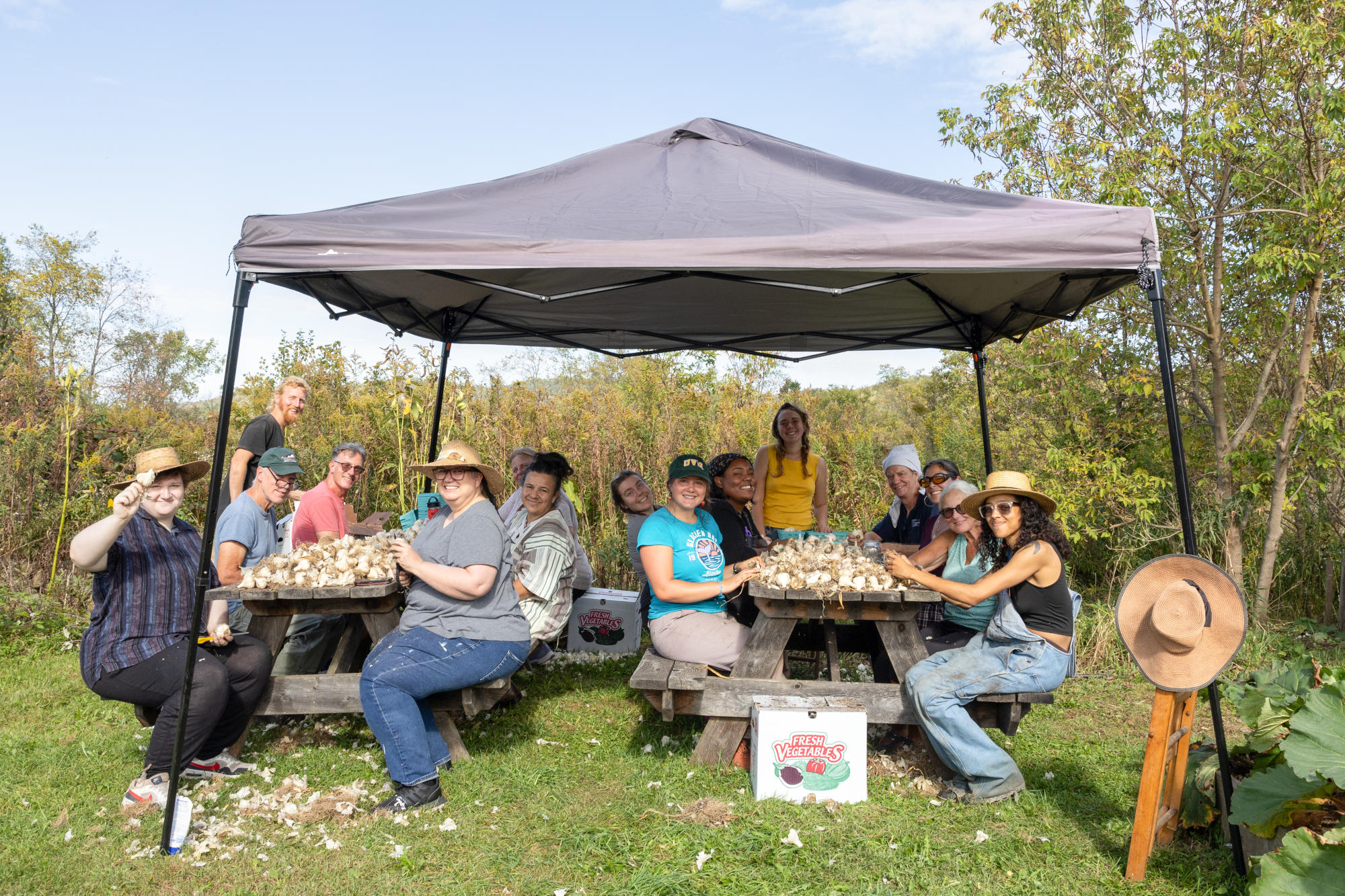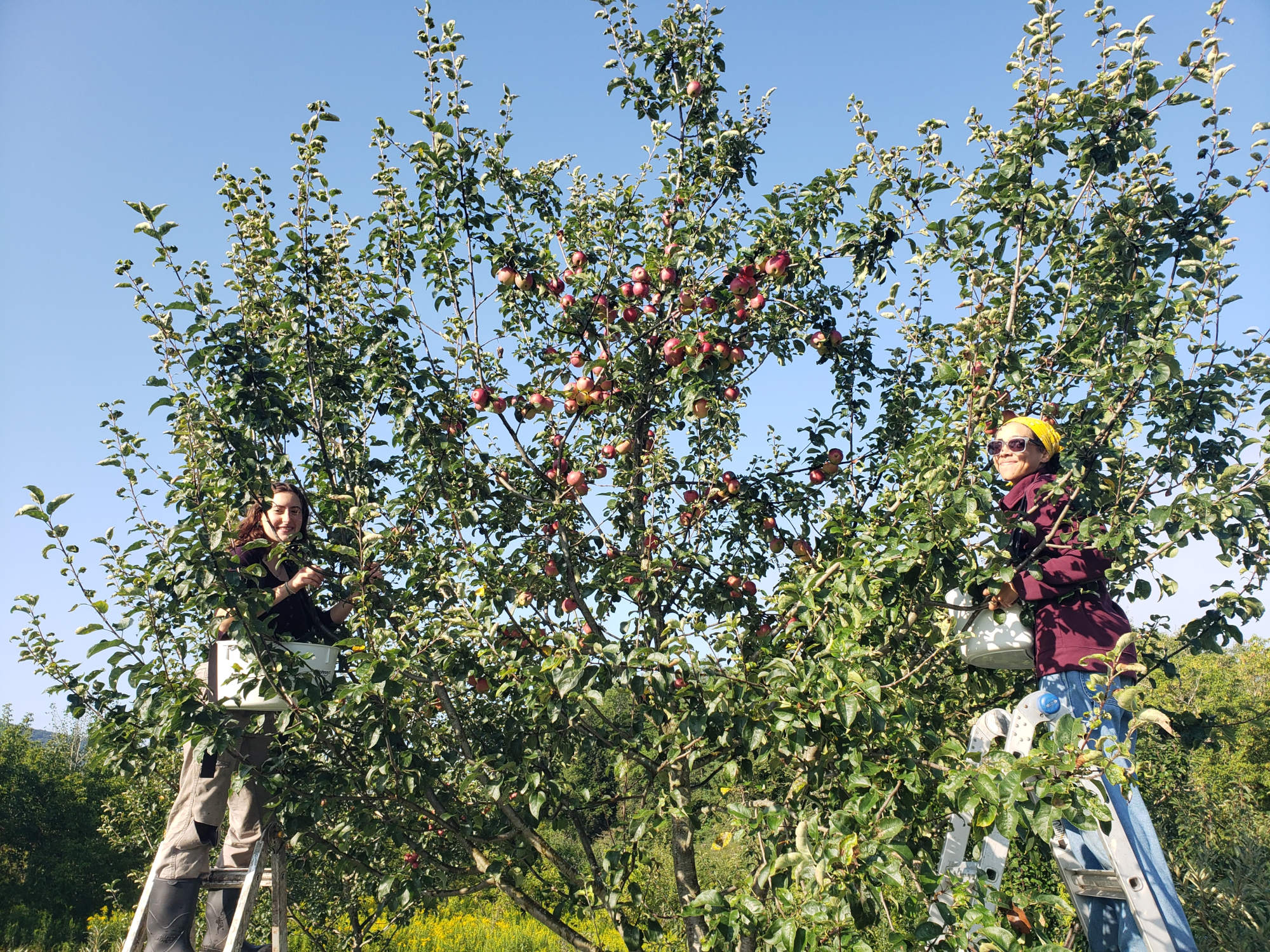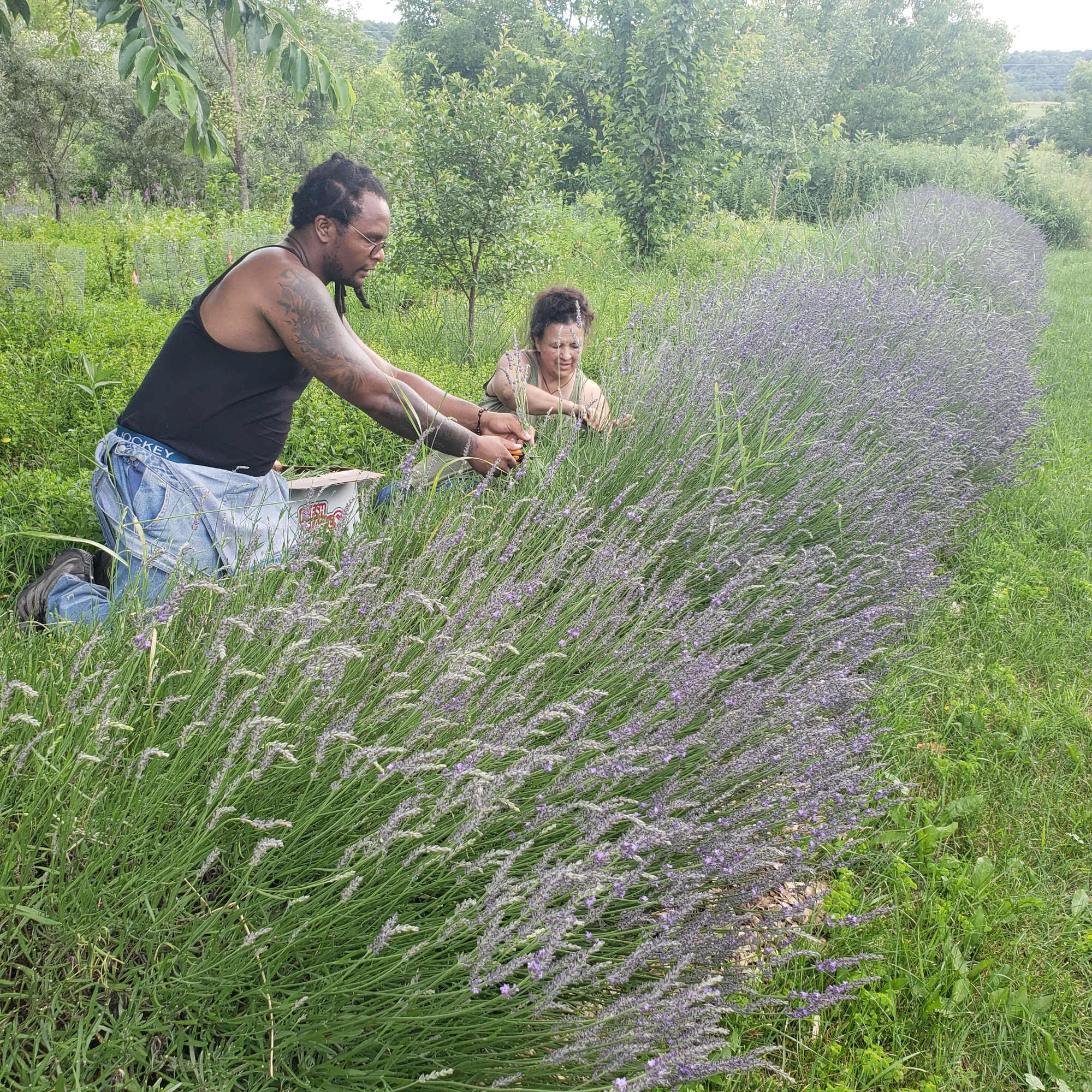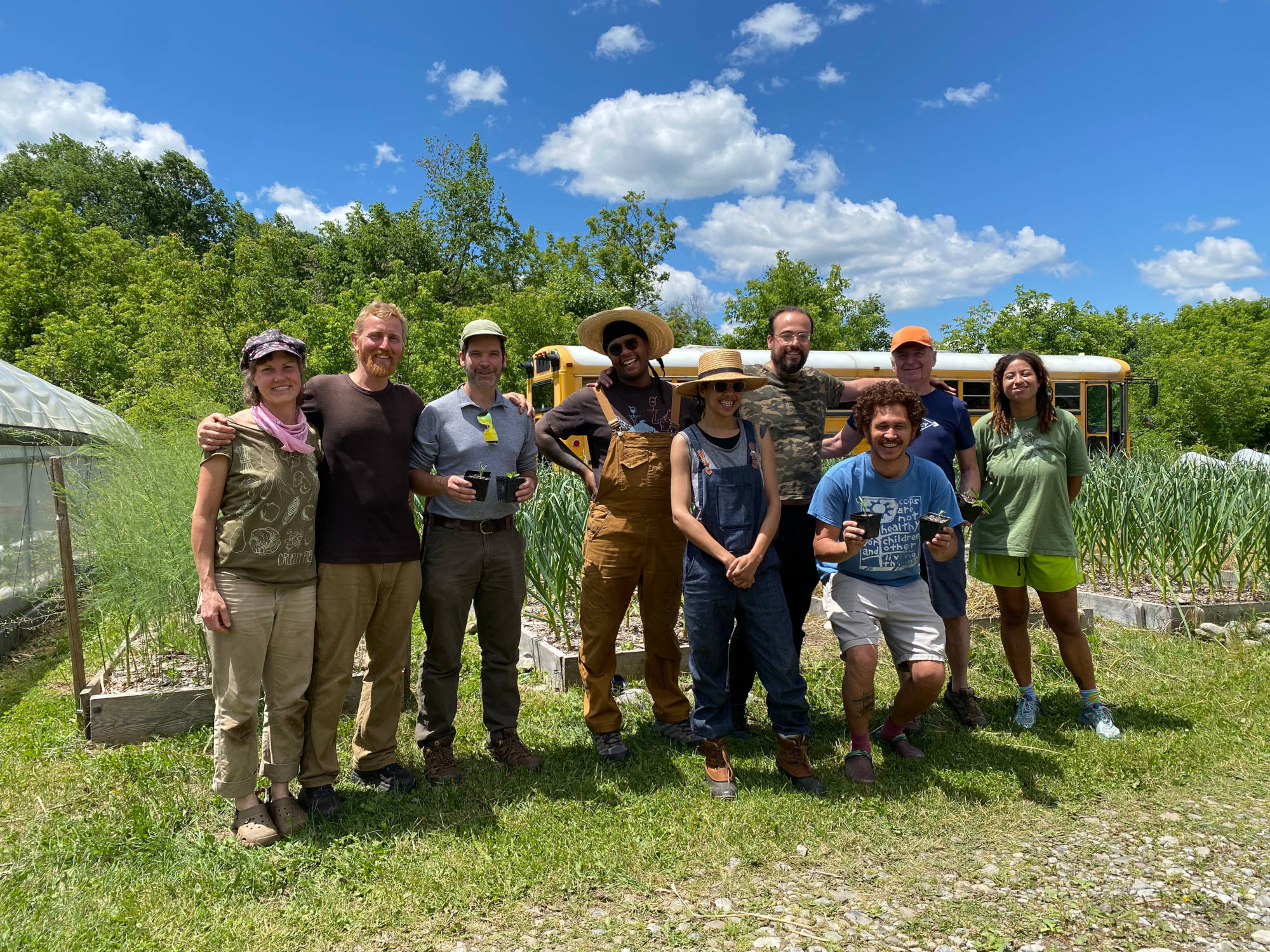Stay In Touch!
Sign up for occasional email updates about upcoming events, volunteer & job opportunities, farm happenings, and more.

For inquiries, please contact unadillacommunityfarm@gmail.com.
December 2, 2024 — Stolen Lands Community Land Trust is bringing an exciting new phase to Unadilla Community Farm as the organization celebrates its 5th year as a 501(c)3 non-profit and the 11th growing season of its one-of-a-kind, multi-story “Food Forest”. With $75,000 in financial support from The National Black Food & Justice Alliance, Stolen Lands purchased the 11 acre property as its flagship location, preserving the farm’s non-profit operations and educational programming while removing the Food Forest from the speculative market, permanently. Alongside the land ownership transition, Unadilla Community Farm also welcomed new leadership from a team of first-generation farmers in the Stolen Lands member network to its management staff and Board of Directors.
Help sustain our impact another decade: unadillacommunityfarm.org/sustainers/
“We are incredibly proud of where Unadilla Community Farm has come, from our first season bushwhacking fields of goldenrod to where we are today. Eleven years later, Unadilla Community Farm is a thriving 501(c)3 non-profit supported by generous donors, foundations, and grants. Now it is time for us to pass the torch on to the next generation, to share all of the knowledge, skills, and lessons we’ve learned in founding this one-of-a-kind non-profit farm education center. We’re so excited to see what the next 10 years hold in store for Unadilla Community Farm!” said Greta Zarro, Co-Founder and outgoing Board President, and Ben Tyler, Co-Founder and outgoing Project Manager.
The incoming board and program leadership at Unadilla Community Farm consists of first-generation farmers from the tri-state region, united through the Stolen Lands cooperative and connected to organizations like the Workers Revolutionary Collective (WRC) and the Northeast Farmers of Color (NEFOC). With experience in animal husbandry, crop management, education, non-profit administration, and community organizing, these farmers have established impactful initiatives, including nonprofits, mutual aid networks, urban food distributions, and animal sanctuaries. Committed to fostering cross-cultural learning and mutual abundance, the new team aims to enhance Unadilla Community Farm’s impact on working-class communities through inclusive practices and sustainable agriculture.
“It is an unimaginable blessing from our creator to have the ability to steward this land. We cannot thank Ben, Greta, and all the contributors to the food forest enough for the energy and love that radiate from Unadilla Community Farm. We are excited to honor this tangible and spiritual connection, which is the foundation of the impact produced here. Get it? ‘Produce!’” said Alex R. Stewart, incoming Board President.
Help sustain our impact another decade: unadillacommunityfarm.org/sustainers/
Unadilla Community Farm showcases and teaches climate-resilient agriculture while increasing food access and access to herbal care for low-income, low-access communities. Founded in 2014 and incorporated as a 501(c)3 non-profit in 2020, Unadilla Community Farm established a multi-story “Food Forest” that is one-of-a-kind in the region with the support of community members. Transformed from an abandoned corn field, the food forest currently provides over 160 varieties of perennial, cold-hardy crops, including over 350 fruit and nut trees; over 480 berry-producing shrubs; ⅓ of an acre of culinary and medicinal herbs; and over 4,600 square feet of bed space for annual vegetables. With support from generous recurring donors, foundations, and grants, 100% of the farm’s produce is donated to food pantries, mutual aid groups, and herbal clinics through its Food Access and Herbal Aid Programs, which amounted to over $120,000 worth of produce donated this season.
Unadilla’s sustainable agriculture education programs, including an accredited month-long Permaculture Internship, a paid 5-month-long Farm Fellowship, Community Volunteer Days, and two Northeast SARE on-farm research studies, teach the life-sustaining skills necessary to become more self-sufficient in accessing food, healthcare, and economic opportunities. Inspired by the international Degrowth Movement, participants are trained in no-till organic farming and regenerative agroforestry techniques, foraging, building natural infrastructure, sourcing electricity using off-grid photovoltaics, organizing nonprofit community programming and designing sustainable food operations. The goal is social, economic, and environmental regeneration, enabling people to improve their health and quality of life, while implementing practices that are both economically and ecologically sustainable.



Sign up for occasional email updates about upcoming events, volunteer & job opportunities, farm happenings, and more.